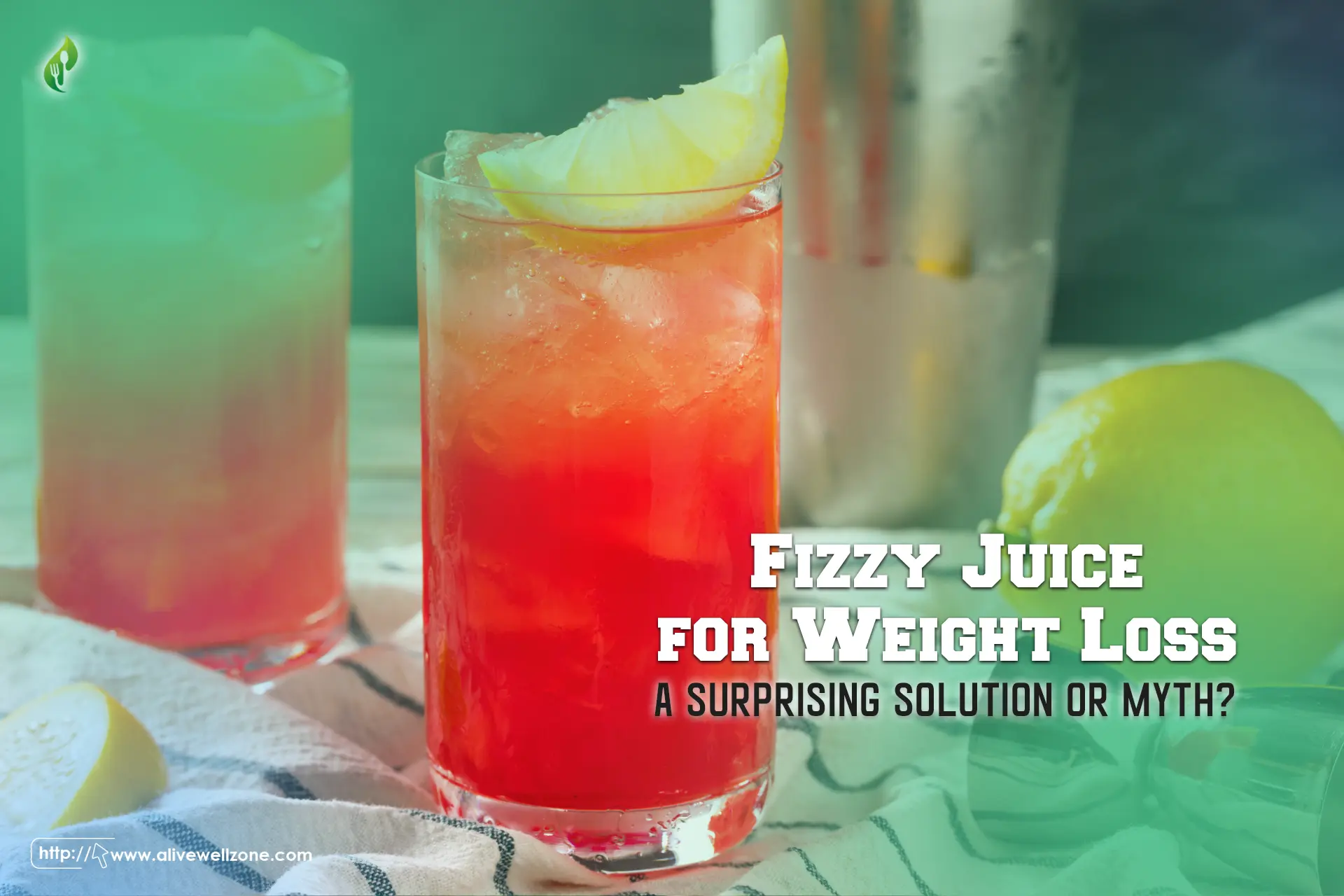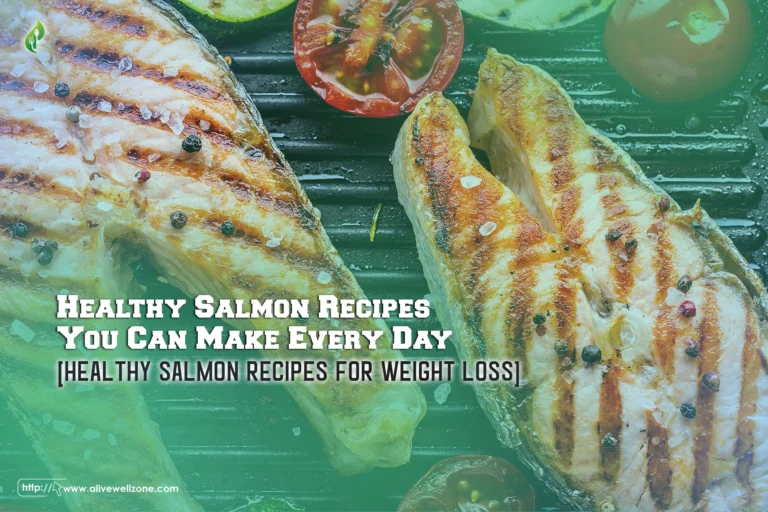
Fizzy juice, with its unique blend of carbonation and flavour, has become a staple in many households. Its crisp bubbles and variety of flavours make it a favourite choice for both young and old. But beyond its refreshing taste, there’s a growing conversation about its place in our diets.
Especially in these days of health and well-being, knowing how our favourite drinks affect us is important. As obesity rates rise and more people aim for healthier lifestyles, how does fizzy juice contribute to weight loss?
So that’s why we’re here to dispel the facts and myths about fizzy juice for weight loss. We’ll take a closer look at fizzy juice, examining its impact on weight and offering insights that might surprise you.
What is Fizzy Juice for Weight Loss?
Weight loss fizzy juice is a drink made to help you lose weight. It can make you feel less hungry and boost your energy use. It’s made with water, bubbles, and different fruits and greens. Its common ingredients are —
- Apple vinegar
- Lemon
- Ginger
- Cucumber
- Lime
- Kale
- Celery
- Grapefruit
- Spinach
Now, different fizzy juice for weight loss recipes use varied mixes. Some might add honey or other sweet things. However, it’s got one key thing and that’s CO2, which can help in weight loss and good health.
Why Drink Fizzy Juice?

Fizzy juice can be good for you in many ways. Here’s how —
- Keeps You Hydrated: Fizzy juice helps you drink more water during the day. That’s good for your body’s normal work like digestion.
- Gives Energy: Some fizzy juices have things like caffeine. These can make you feel awake and help your body use energy.
- Fewer Calories: If you want to lose weight, fizzy juice can be better than sweet drinks. Some have no sugar, so you don’t gain extra weight.
- Good for Digestion: Some fizzy juices have fiber. It helps your stomach work better and makes you feel full.
- Many Tastes: There are many fizzy juice flavours. From cola to fruit mixes, you can easily find one you like.
- Good for Health: Some fizzy juices have vitamins and minerals. These are good for your body’s overall health.
- Easy to Carry: Fizzy juices come in cans or bottles. It’s especially helpful if you’re busy and need a drink on the move.
While fizzy juice has its place, it’s essential to remember that healthy foods can help you lose weight. It’s easy to lose weight if you eat a balanced diet.
How Can Fizzy Juice Help in Weight Loss?

Fizzy juice is a bubbly drink that many people like. Some say it can help with weight loss though it’s not proven scientifically yet. Let’s see how.
Makes Your Body Work Faster
Some fizzy juices, especially those with citrus flavours, can help speed up how your body works. This might help you burn fat a bit faster.
Fewer Calories
Compared to many sweet drinks, most fizzy juices have fewer calories. This makes them a smarter choice if you’re watching your weight.
Might Make You Hungry
An interesting thing about fizzy juice is its bubbles. Some believe these bubbles might make you feel hungrier after drinking. So, while you’re sipping on a low-calorie drink, you might end up wanting to eat more later.
Choose Wisely
It’s okay to enjoy fizzy juice now and then. But it’s best to go for ones with less sugar and more natural ingredients. That way, when you crave something sweet, you’re still making a healthier choice.
Can Make You Feel Better
Certain fizzy juices can give you a quick energy lift. Ingredients like caffeine can help you feel more awake and focused for a while. But for long-term well-being, it’s essential to balance your diet, stay active, and manage stress.
Seek Expert Advice
Before making big changes to your diet, it’s always good to talk to a health expert. They can guide you on what’s best for your body. And if you’re curious about how fizzy juice affects weight loss, checking out fizzy juice weight loss reviews can offer some insights.
Beyond individual choices, consider improving your overall well-being. To improve your health and productivity, consider a wellness program for weight management.
Is Fizzy Juice Really Helpful for Weight Loss?
Fizzy juices, while popular and refreshing, often come packed with sugar. This sugar can lead to weight gain if consumed in large amounts. Moreover, these drinks lack essential nutrients, making them less beneficial for overall health.
While they might seem like a quick thirst quencher, they don’t truly support weight loss in the long run.
The Fizzy Juice Feeling
The bubbles in fizzy juice can make your stomach feel full for a bit. But it’s a temporary sensation. It’s a kind of fizzy juice trick that doesn’t last, and soon enough, you’ll find yourself feeling hungry again.
Better Ways to Feel Full
For a lasting full feeling, it’s better to eat foods rich in fiber like fruits, vegetables, and whole grains. These foods take longer to digest, keeping you satisfied for more extended periods.
Plus, calorie-free beverages like water, tea, or coffee can help hydrate you without adding extra calories.
What to Do for Weight Loss
If you’re aiming to shed some pounds, it’s wise to limit or avoid fizzy juices and other sugary beverages. So, opt for healthier drink choices and combine them with a balanced diet and regular exercise for best results.
With that said, real-life stories can inspire and guide you. So, take a look at the weight loss journey of Chrissy Metz if you want to know what it’s like to lose weight.
Are Diet Fizzy Drinks Better for Weight Loss?
We’ve provided a brief comparison table below to show whether diet fizzy drinks are more effective at weight loss or not.
| Type of Fizzy Drink | Main Ingredients | Good for Weight Loss? |
| Regular Fizzy Drink | Sugar, Citric Acid | No, high in sugar and energy. |
| Diet Fizzy Drink | Artificial Sweeteners, Citric Acid | Yes, low in energy but no nutrients. |
| Zero Sugar Fizzy Drink | Artificial Sweeteners, Sodium Citrate | Yes, low in energy but no nutrients. |
| Naturally Sweetened Fizzy Drink | Natural Sweeteners (e.g., Stevia, Fruit Juice) | Better than regular, but check for natural sugar content. |
Tips for Those Watching Weight
Fizzy juice isn’t a magic drink for weight loss, but it’s not all bad. But drinking too much sugary fizzy juice can make you gain weight. If you want to lose weight, it’s best to drink more water or herbal tea.
Basically, you need to be careful how much and what kind of fizzy juice you drink. Drinking a little now and then is okay.
Here are a few tips that you should keep in mind —
- Try to drink water instead of fizzy juice.
- If you really want fizzy juice, choose the ones with less sugar and natural stuff.
- Don’t drink too much fizzy juice. It can make you gain weight.
- If you have health problems like GERD, ask your doctor before drinking fizzy juice.
- Always check the drink labels to know what’s inside.
Conclusion
Fizzy juice, as we explored presents an intriguing angle in the weight loss conversation. While it offers certain benefits, it’s not a one-stop solution for shedding pounds.
Now, the key takeaway is balance. If you rely too much on fizzy juice, you might make mistakes and end up gaining weight. So, instead of just depending on fizzy juice, it’s vital to maintain a broader perspective.
A well-rounded diet, coupled with regular exercise, remains the most effective approach to weight management. Remember, while fizzy juice can be a part of your diet, it shouldn’t be the centrepiece. Maintain a healthy lifestyle and make informed choices for weight loss success.
FAQs
Is fizzy juice okay to drink?
Drinking sugary fizzy drinks often can cause problems like bad teeth, weight gain, type 2 diabetes or even heart issues.
Can fizzy drinks help with thirst?
Soda has water in it, so it doesn’t usually make you more thirsty. But, it’s not the best drink if you want to stay well-hydrated.
How many fizzy drinks should I have in a day?
There’s no fixed number, but it’s good to watch the sugar in them. Try to keep the sugar you get from drinks and food to less than 10% of all the energy you use in a day according to US recommendations.






